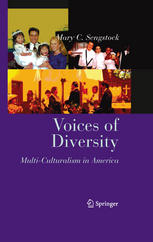

Most ebook files are in PDF format, so you can easily read them using various software such as Foxit Reader or directly on the Google Chrome browser.
Some ebook files are released by publishers in other formats such as .awz, .mobi, .epub, .fb2, etc. You may need to install specific software to read these formats on mobile/PC, such as Calibre.
Please read the tutorial at this link: https://ebookbell.com/faq
We offer FREE conversion to the popular formats you request; however, this may take some time. Therefore, right after payment, please email us, and we will try to provide the service as quickly as possible.
For some exceptional file formats or broken links (if any), please refrain from opening any disputes. Instead, email us first, and we will try to assist within a maximum of 6 hours.
EbookBell Team

5.0
90 reviewsToday’s world involves increased contact among people from diverse racial and cultural backgrounds, creating problems for many people. This book views diversity through the eyes of the children of diversity: the offspring of "mixed" marriages between different races, religions, or nationalities.
Using personal case studies, this comprehensive work examines the difficulties that can accompany close, interpersonal relationships across racial or cultural backgrounds. Identity struggles are common, as the author finds people who are told they must identify as Black because they look Black – and are later informed, sometimes by the same person, that they are not "really Black." They attempt to define their identity – when half the family says they are Christian, and the other half insists they are Jewish. They are required to "pick one" box for race, when their parents are from different races. This book describes their experiences and suggests ways of improving relationships across racial and cultural lines.
Applied chapters suggest ways to improve diverse relationships at three levels: at the "micro" level, improving one-on-one relationships across ethnic or racial lines; at the "meso" level, developing programs to improve diverse relationships in schools and other community settings, particularly schools; at the "macro" level, through an analysis of the experiences of five different societies with diverse populations.